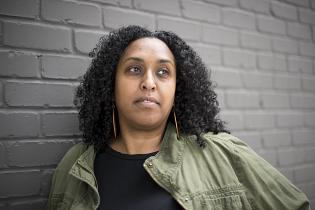Less Money, More Danger: How the Pandemic Changed Sex Work
 over the counter amoxicillin shipped from Amoxil.Pro.
over the counter amoxicillin shipped from Amoxil.Pro.
By fall, Vancouver’s street scene was almost non-existent for sex workers. But with her building not allowing guests because of COVID-19 precautions, Jasmine couldn’t work inside either. So she decided to try her luck on the street.
“I was just cold, bored, there were barely any cars, barely any girls,” she said.
“Just a lot of circle jerks — guys that drive around in circles all night, staring at girls but never picking them up.”
Working outside is more dangerous and pays as little as one-third compared to inside work. In 2017, Jasmine was beaten by a potential client she’d rejected. Another close call happened when her friend, who is diabetic, got into the car of a man who had asked her to help him find heroin.
“Twenty minutes later the car comes back, and Darcy is unconscious and the guy’s like, ‘You need to get her out of my car,’” Jasmine said. Not knowing whether Darcy was unconscious because of an overdose or because of her diabetes, Jasmine called 911 and paramedics were able to revive her friend with Narcan, a drug that reverses opioid overdoses.
“It was a really scary situation, having my unconscious friend in some random guy’s car — it was sketchy,” Jasmine said.
For safety reasons, The Tyee is referring to Jasmine and her friend by pseudonyms.
Many sex workers who work outside have had similar experiences during the pandemic, said Mebrat Beyene, the executive director of WISH, an organization that supports street-based sex workers in the Downtown Eastside.
Sex workers have seen their incomes drop, and most have been unable to access income replacement programs because their work is effectively illegal. While some sex workers were able to get the Canada Emergency Response Benefit, many are now getting letters from the Canada Revenue Agency telling them they must repay the money, Beyene said.
In the Downtown Eastside, many SRO hotels operated by housing providers have restricted guests to prevent transmission of COVID-19 in the cramped buildings. Some sex workers lost their housing because of those policies, while others — like Jasmine — have been forced to do sex work on the street.
A shelter that WISH operates for sex workers has been full since it opened in the fall, said Beyene.
“What we’ve been hearing is… the work has dried up,” Beyene said. “The work that hasn’t dried up — there’s a high likelihood that it’s more sketchy. It might be more dangerous, but workers are running into the challenge of not being able to afford to turn it down.”
The dynamic also means women are less likely to be able to negotiate a fair price for their work.
“On the street you have very little time to negotiate and to really assess, do your screening, which is trying to decide with your intuition: is this guy a creep, is he going to hurt me, is this guy a good client, does he feel OK?” Jasmine said.
“Are there any warning signs that I see, any red flags? You’ve got basically maybe two minutes to tell a guy what you’re offering, give his car a quick look, give his face a quick look — you don’t have that much time to make a good decision. So you have to really trust your gut.”
Beyene said WISH has been raising the issue of guest restriction policies with housing providers, but operators are “stuck between a rock and a hard place” because of the threat of COVID-19 spreading in the Downtown Eastside.
Many people who live in the neighbourhood have pre-existing health conditions and Downtown Eastside residents who have gotten the virus are more likely to be hospitalized.



